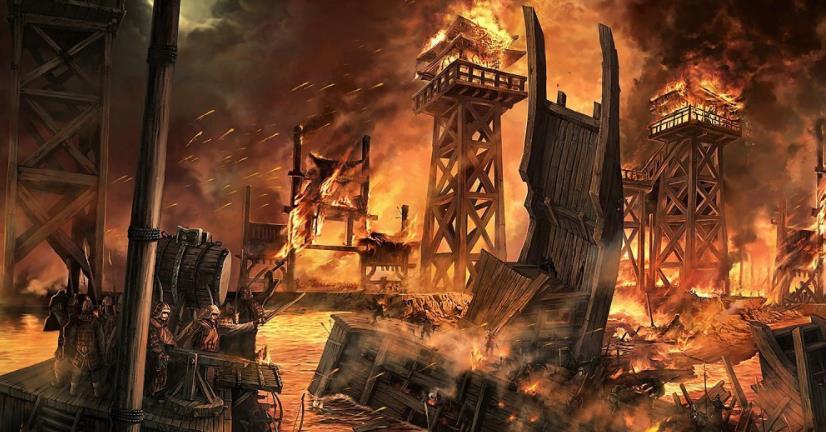In most of the history books and stories we have read, the first reaction to mentioning the Yangtze River is always natural danger. There are also countless regimes that use the Yangtze River as a barrier to encounter enemies on the banks of a river. There are countless heroes whose dreams of reunification have been cut off by the Yangtze River, and Cao Cao is one of them. But in fact, many people in the Yangtze River have been to the reality, the water potential is not urgent, it is not a natural danger at all, why is it still called a natural danger? In fact, it is mainly because there is a big difference between individual crossing the river and crossing the river to fight.

First of all, for marching and fighting, the Yangtze River is indeed very difficult to cross. In the Battle of Chibi, It was claimed that Cao Cao had 200,000 troops. Thousands of Mengchong (Three Kingdoms period ships) were used to transport them. With such a huge ship transportation capacity, 200,000 troops were transported to the Yangtze River. It can be seen that for a historical war such as the Battle of Chibi, a thousand ships must be dispatched to cross the river or cross the river, not to mention the general operation. Therefore, the reason why the Yangtze River is called a natural danger is mainly because it is difficult for the army to cross the river.
Second, it was almost impossible for the defender to cross the river for a marching battle. Historically, at the Battle of Chibi, Cao Cao had carried 200,000 soldiers to the south, while Zhou Yu and Cheng Pu each brought 15,000 soldiers and Liu Bei's army to meet and attack. The result was the famous burning of Chibi above the waters of the Yangtze River. The final result was that Cao Cao's army was almost completely destroyed, and a situation of three kingdoms was formed. It can be seen that it is even more difficult to cross the Yangtze River or fight on the river surface when there is a defense. Therefore, because it is not crossed in defensive situations, it is called natural danger.
In general, although the Yangtze River is very slow, it is difficult to cross the river at the army level, so it is called natural danger. Whether it is the transportation of its own huge number of people, or the operation of crossing the river, it is a very difficult thing. Therefore, historically calling the Yangtze River a natural danger is not out of thin air.
In fact, there is a lot of partial knowledge like the Yangtze River is called natural danger. In the face of history, we should think calmly, often sometimes there is an essential difference between the actions of one person and the actions of more than 102,000 people in ancient times. Sometimes it seems easy to be one person, and maybe it is difficult to reach 100,000 people. As lovers of history, we must learn to think calmly and pertinently consider these issues. Instead of being like a crowd and not knowing what to call it.